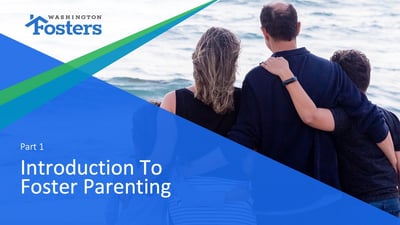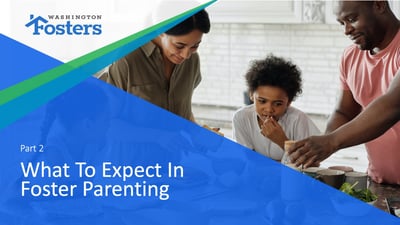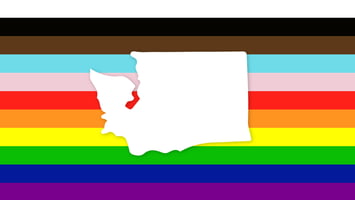Picture a 15-year-old boy. He’s just starting high school, struggling with all the things that average teenagers struggle with. Plus, he’s decided that he’s going to finally come out to his conservative parents.
When he does, they’re furious. They yell, scream, and berate him for something they believe is his “choice.” Eventually, he decides he can’t take it anymore, so he runs away.
A few months later, he finds himself in a foster home alone, scared, dealing with the trauma of losing his family and unsure about his future.
There is no official data on the prevalence of LGBTQ children in foster care, but experts believe the population is disproportionately high. Because many youth leave home, or get kicked out, as a result of their sexual orientation, they are more likely to end up in out-of-home care than their peers.
Access Our FREE On-Demand Webinar Course: Foster Parenting in Washington State

The Importance Of Supporting LGBTQ Youth In Foster Care
Compared to their non-LGBTQ peers in foster care, LGBTQ youth face a laundry list of additional challenges.
They’re often bullied at school and in group homes, where they may even face abuse from other foster youth, and they’re discriminated against, sometimes by their foster parents. Through it all, they’re also dealing with the trauma of losing their family and sense of home.
When children endure these traumas, the results can be devastating. Short-term, LGBTQ youth are more likely to develop mental health and behavioral issues. This often makes it harder for them to find suitable placements and negatively impacts permanency outcomes.
Long-term, the trauma induced by these challenges leads to higher rates of chronic psychological problems, homelessness, depression, and suicide.
To stem these problems, it’s critical for foster parents, caseworkers, and other agencies to understand the best way to support LGBTQ foster youth so they feel comfortable and secure in their identities.

How Foster Parents Can Support LGBTQ Youth
In Washington State, supporting LGBTQ foster youth is a requirement for all foster parents. As part of the licensing process, families must be willing to truly care for them without bias, a commitment that starts by debunking some of the most common myths.
Common Myths About LGBTQ Youth
Something Caused Their Sexual Orientation—Youth do not identify as LGBTQ because of a book they read, a movie they saw, or something that someone else did to them. Just like their peers, who they are is the complicated result of genetic, biologic, and environmental factors. It is not their choice, it is their identity.
It’s Temporary—A person’s sexual orientation is not a passing trend or some phase that your youth will grow out of. It is a deeply embedded part of their core being.
Your Religion Won’t Cope—Many conversative foster parents believe that fostering an LGBTQ youth and maintaining their faith are incompatible. The reality is, many religions readily support LGBTQ people. And, if yours doesn’t, there are many ways that you can practice your beliefs and still support a foster child, even if the two seem at odds with each other.
Foster parents who take the time to educate themselves about the challenges LGBTQ youth face are better equipped to care for them and provide safe and secure environments.
Beyond taking the time to learn more about LGBTQ issues, foster parents can also express their support by incorporating these practices into their daily routines.
- Allow self-expression by letting them choose their own clothes, room decor, and friends
- Make indirect affirmations of their identity, like watching LGBTQ-friendly TV shows, hanging rainbow artwork or flags, or expressing your support of diversity in all forms
- Support their desire to join social clubs and other groups that are LGBTQ-friendly
- Make it clear you do not tolerate discrimination of any form, including jokes and slurs
One of the most incredible ways to support LGBTQ foster youth is to have more LGBTQ foster parents who can offer unique support born from common experiences.
Thinking about becoming a foster parent? Click here to access our FREE on-demand 8-part webinar course to learn more about the importance of foster parents, the process of getting licensed, and the everyday experience of caring for a foster child.








